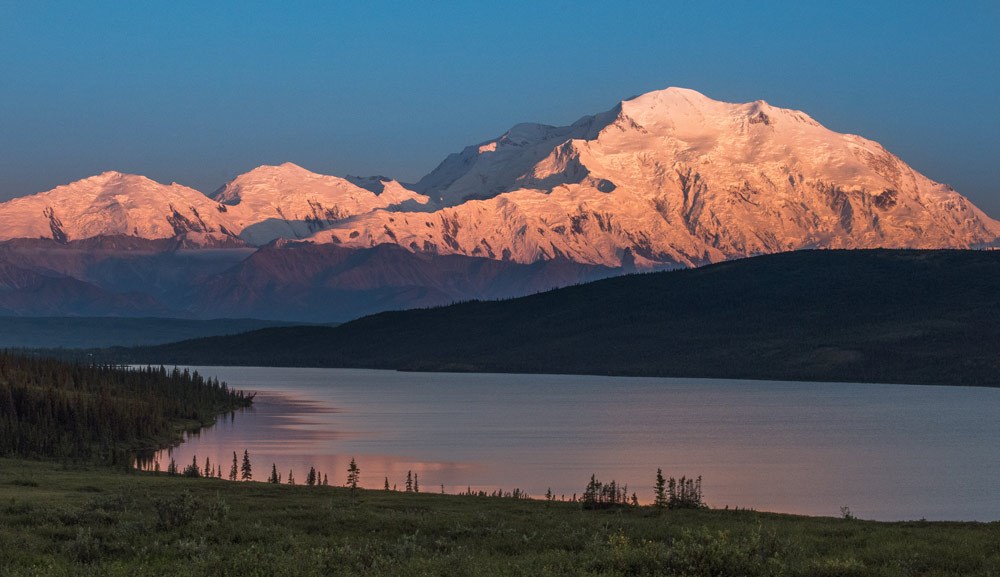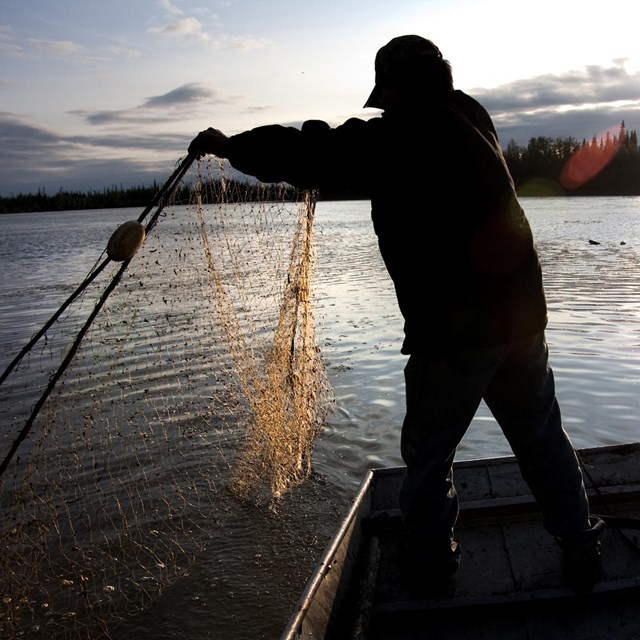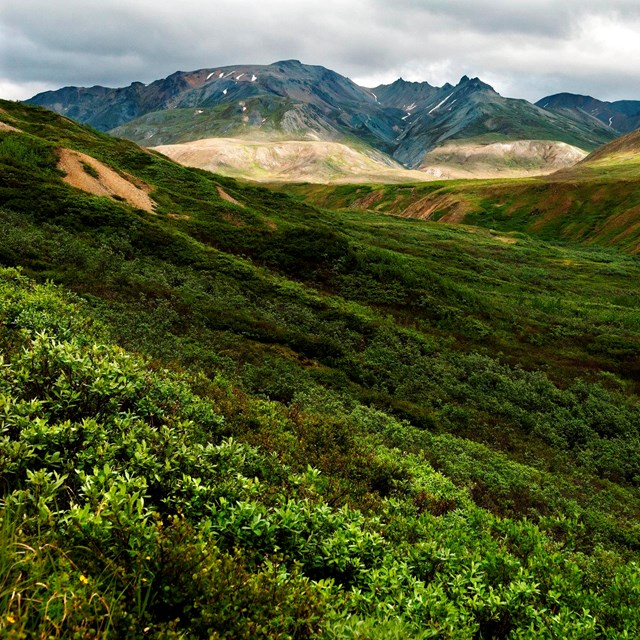
Mount McKinley tinged pink by alpenglow Mount McKinley, Denali, Bulshaia Gora, Densmore Mountain… North America’s tallest peak has gone by many names. While the name of the mountain and the name of the park have changed multiple times since the park was established in 1917, the park’s essence—a vast, intact ecosystem, providing opportunities for education, inspiration, subsistence, and recreation—has not changed. Name OriginsNo fewer than nine Alaska Native groups, from time immemorial, have used unique names for the mountain. There are five Athabascan languages surrounding the park, each with its own oral place name. According to University of Alaska linguist James Kari, the groups to the north and west of the mountain (and Alaska Range) use words that translate to “the tall one.” The Athabascan languages to the south of the mountain use words that mean “mountain-big.” The name “Denali” stems from “deenaalee,” which is from the Koyukon language traditionally spoken on the north side. The first non-Native record of the mountain came from George Vancouver in 1794, when he referred to the “stupendous snow mountains.” Early 18th and 19th century Russian explorers had several names for the mountain. In 1834, explorer Andrei Glazunov called the highest peak Tenada, which is Deg Hit’an Athabascan and means “the great mountain.” This name appears on an 1839 map of the area. Another Russian name used to describe the mountain was Bulshaia Gora and means “Big One.” The US purchased Alaska from Russia in 1867 and a couple of decades later, a gold prospector named Frank Densmore explored Interior Alaska and effused about the tremendous mountain. Prospectors all along the Yukon River started calling the mountain “Densmore Mountain” or “Densmore Peak.” “Mount McKinley” emerged after a gold prospector named William Dickey, an admirer of President-elect McKinley, used the name in an 1897 New York Sun article. Although the new president had no direct connection to Alaska, the name Mount McKinley was popularized following the president’s 1901 assassination. Name Changes Over the YearsRenaming efforts began before the establishment of the park and have continued into the present. In 1916, when legislation was first drafted to establish a new national park to protect wildlife, there was disagreement over what the park should be named. “Mount McKinley National Park” officially prevailed after its legislation was signed into law on February 26, 1917. Despite the official decision to use “Mount McKinley” as the name of the peak and the national park, the debate did not die. In 1975, the name controversy reemerged when the State of Alaska petitioned the U.S. Board on Geographic Names to change the name of the mountain to Denali officially, though the Ohio congressional delegation (representing former-President McKinley’s home state) blocked their efforts for the next four decades. In 1980, the Alaska National Interest Lands Conservation Act changed the park’s name to Denali National Park and Preserve. The official name of the mountain remained Mount McKinley until 2015, when President Barack Obama and Secretary of the Interior Sally Jewell restored the name Denali to the mountain. In 2025, President Donald Trump issued an executive order to change the name of the mountain back to Mount McKinley. The name of the park remains Denali National Park and Preserve. Learn More
|
Last updated: March 26, 2025



